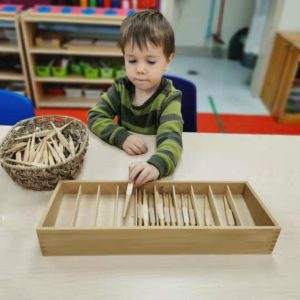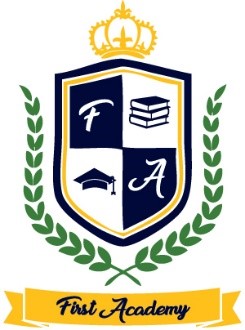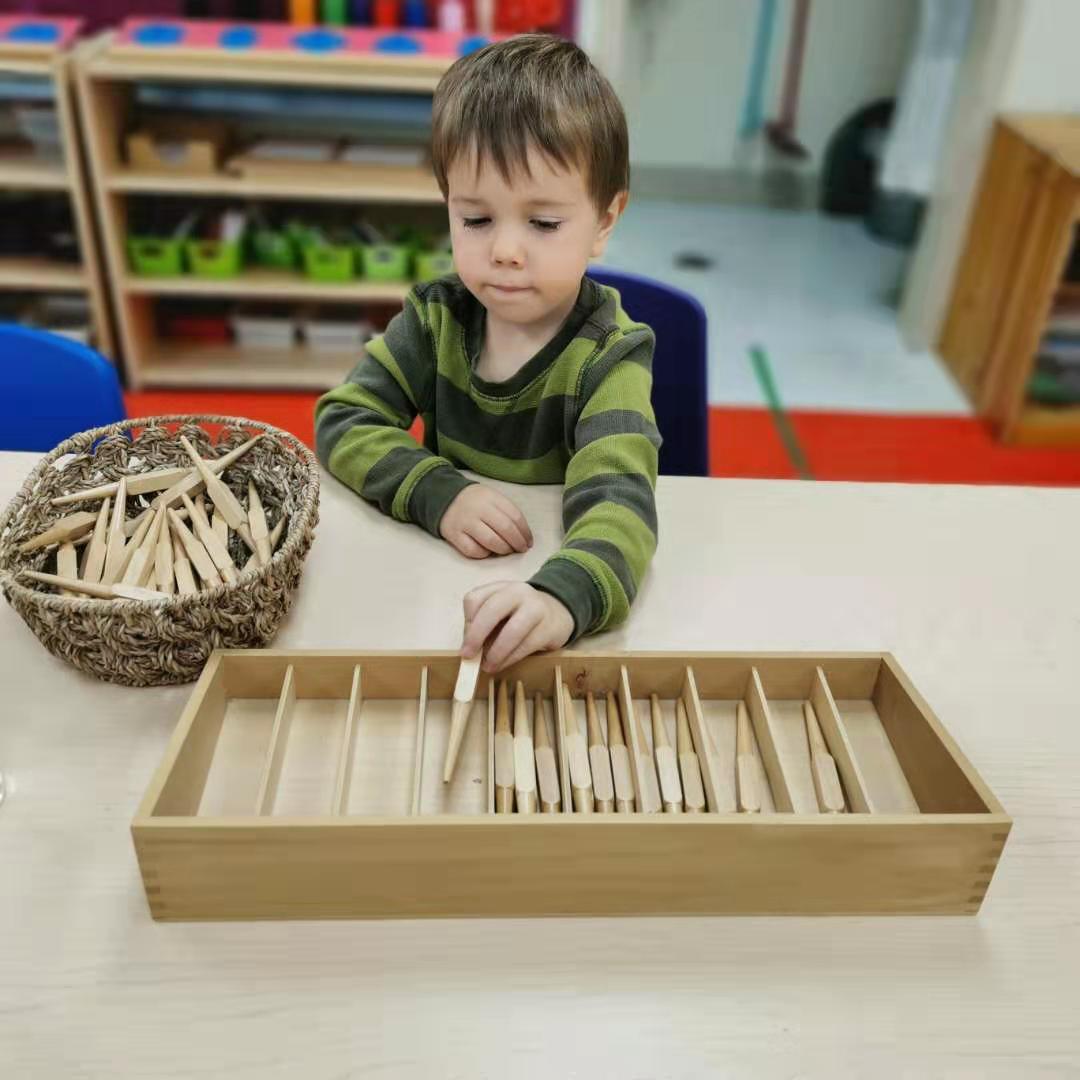First Academy prides itself in providing a caring and nurturing environment for your children through our authentic Montessori Casa program.
Our Casa Program is based on the Montessori philosophy which strives to provide each child with an environment in which they learn and develop essential learning habits to be successful students. This prepares them for the challenges of the future school years.
The children explore various areas of study, absorb independent learning, and develop self-esteem and leadership with age-appropriate activities.
The key components of the Montessori teaching environment and methodology are:
- An environment specially created to help a child develop to their full potential
- To foster independence and encourage the child to take initiative, which will enhance the rapid growth of the social, emotional and self-confidence of the child.
- The Montessori teaching is based on following the child’s inner need to learn.
- The child works at his/her own pace in a non-competitive environment. A child works for the satisfaction of completing an activity.
- An individual education plan for each child; the teacher is a “Guide” who directs the child’s learning.
- Montessori principles are based on respect for the child’s personality, and the program develops the entire personality and not just the intellect.
- To build self-discipline and good work habits for life.
Call our school for information on this exciting program!
Outcomes & Expectations for Our 3 Year Program
Why 3 Years?
- Montessori classes are organized to encompass a three-year age span, which allows younger students the stimulation of older children, who in turn benefit from serving as role models. Each child learns at her own pace and will be ready for any given lesson in her own time, not on the teacher’s schedule of lessons. In a mixed-age class, children can always find peers who are working at their current level.
- Children normally stay in the same class for three years. With two-thirds of the class normally returning each year, the classroom culture tends to remain quite stable.
- Working in one class for two or three years allows students to develop a strong sense of community with their classmates and teachers. The age range also allows especially gifted children the stimulation of intellectual peers, without requiring that they skip a grade or feel emotionally out of place.
Our 3 year Montessori Casa program will help your child in many aspects of life, such as:
- Developing Independence
- Freedom of choice
- Consequences for choices made
- Becoming aware of their actions
- Teaching self-help skills (dressing themselves)
- Building concentration
- Through structured Activities
- Cycle of Activity
- Respect
- For the Environment (classroom, home and outside)
- For their peers
- For teachers and parents
- For their own bodies
- Grace & Courtesy
- Encourage good manners at all times
- Role modeling
- Academics
- Individual education plan for each child
- Math concepts for addition, multiplication, subtraction and division are introduced
- Language is initiated with sounds and then leads to simple reading
- Geometry concepts are introduced through concrete sensorial materials
- Fine motor skills are refined through Practical Life activities
- Abstract concepts in the Universe such as land, water and air are introduced through cultural activities. Cultural activities introduce concepts of time and our environment.
- Making learning fun at all times
Five Learning Areas in a Casa Classroom
Practical Life Exercises
The exercises of “Practical Life” are the foundation of a Montessori environment, which allows the child to develop control and coordination of movement, awareness of their environment, orderly thought patterns, independent work habits and responsibility. The direct aim of these exercises is to master self-help skills and to build confidence and independence. The indirect aim of these exercises is to improve and refine the fine motor skills of the hand and arm muscles in preparation for writing skills.
Sensorial Exercises
These exercises aid the development and refinement of the senses by providing organized opportunities for contact with the environment. Through the isolation of the senses, a refinement of the senses can be developed. Sensorial discrimination leads from the concrete to the abstract and is a preparation for the intellectual and the logical mind.
Languages
Language is taught phonetically using materials which increase vocabulary, development of visual perception and correction of pronunciation. Once a child has mastered the entire alphabet, we can begin to compose and build words in steps, finally achieving reading and writing skills. In addition to English, the children will learn French, which will enhance the child’s receptive and expressive communication skills.
Math
Children are introduced to basic math functions through concrete materials. Gradually, as the child absorbs the concepts, simple computations are introduced in addition, subtraction, multiplication and division. Math is introduced using games like – “snake game, bank game” so that the child learns math concepts without realizing it. The child’s learning is truly effortless!
Cultural Activities
Cultural subjects encompass Art, Geography and Social Sciences through indoor and outdoor activities, individually and in groups. This builds self-awareness with an introduction to the community and environment around them. A music specialist teaches the children appreciation of music and rhythm, with simple percussion instruments, once a week.


